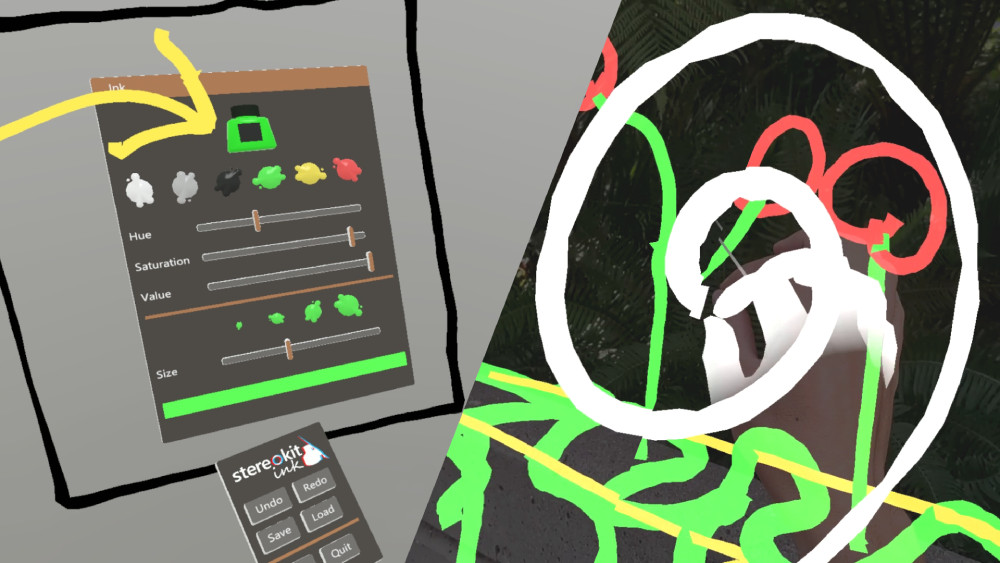This is a demo application on how to use Azure Spatial Anchors with StereoKit to persist world anchors between sessions and devices.
StereoKit is "an easy-to-use open source mixed reality library for building HoloLens and VR applications with C# and OpenXR!"
Want to build a quick VR or MR app? Stereokit will most likely be the tool to use.
It provides a template to Visual Studio so that you have the initial boilerplate done and also a cool simulator. Check out their site for more details.
copyright Stereokit
Azure Spatial Anchors (ASA) allow apps to map, persist, and restore 3D content or points of interest at real-world scale (aka spatial anchors).
The interesting part of using ASA is that it works on multiple devices and allows an easy way to share the anchors accross them. So one user with, for instance an Hololens, can place an anchors on the real world, and another user with an Android phone can see also see the anchor, this of course as long as both users are on the same physical space.
To run this sample it's required to have an Azure account and create Spatial Anchor resouce. For more on this you can follow this tutorial.
copyright Microsoft
This demo was tested on a Hololens 2. Azure Spatial Anchors to discover anchors needs some sort of anchors location criteria. Currently ASA supports:
- providing a list of know anchors identifiers;
- looking for anchors near the device using device sensors
- looking for anchors near other anchors
This sample will try to locate anchors near the device. It also includes a (commented) example on how to load specific anchors from a storage, in this case a local file.
Please also notice the changes made to the Package.appxmanifest Capabilities section for the correct dependencies.
To use the PlatformLocationProvider with WiFi we need to make a change to the Package.appxmanifest capabilities, but the current editor does not suppor this.
So right-click on the file and choose "View Code" and then change the <Capabilities> to have <DeviceCapability Name="wiFiControl"/>.

